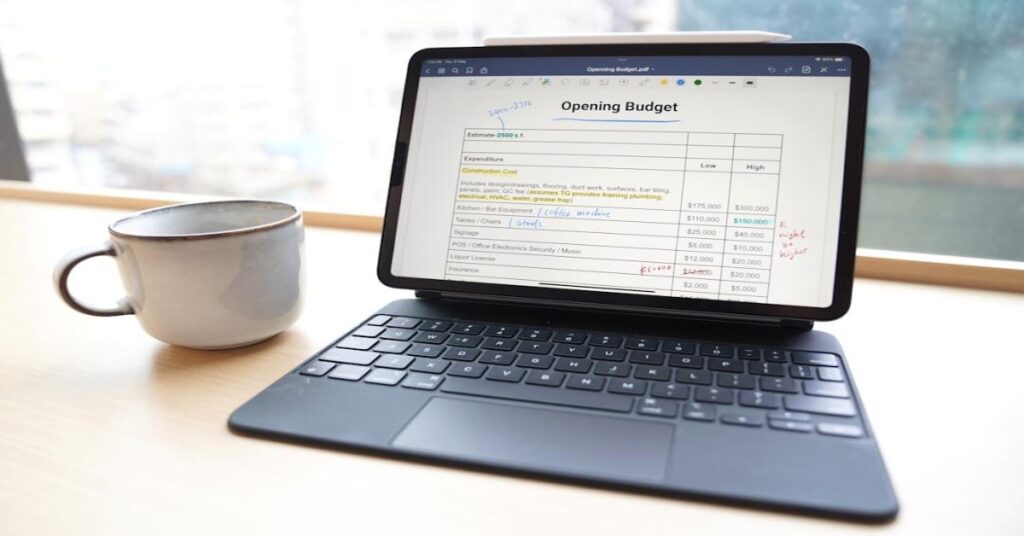Navigating the financial landscape can be daunting, especially when facing both expected and unexpected expenses. Creating a budget that accommodates monthly bills, life’s unpredictabilities, and future aspirations is vital. Establishing a robust financial plan ensures not only peace of mind but also long-term stability. In this article, we will explore how to effectively budget for both significant milestones and smaller, day-to-day expenses.
Understanding Budgeting Basics for Financial Well-Being
Grasping the fundamentals of budgeting is the first step toward achieving financial wellness. A budget is more than just a ledger of income and expenses; it’s a tool that helps manage money, prioritize spending, and reach financial goals. Recognizing fixed expenses, such as rent and car payments, and variable expenses, like dining out or entertainment, is crucial.
A critical component of budgeting is differentiating between wants and needs. Needs are essential for survival and well-being, such as housing, food, and healthcare. Wants, however, are things that enhance our lives but are not essential, such as the latest smartphone or designer clothing. Balancing these aspects is the key to a healthy financial plan.
Crafting a Flexible Budget to Handle Routine Expenses

Creating a budget that adapts to fluctuating monthly expenses is necessary for consistent financial management. Routine expenses, like groceries, utilities, and phone bills, can vary, so it’s important to have some leeway. Allocating a range for these expenses each month can avoid overspending.
One key component in managing routine expenses is understanding mobile bill cycles and due dates. Timely payments not only protect one’s credit rating but can also prevent late fees and additional charges. For example, knowing you can reliably pay my Boost Mobile bill online ensures that you maintain your Boost Mobile service without incurring extra costs.
For discretionary expenses such as dining out, a flexible budget also means setting realistic limits. Rather than completely cutting out fun activities, it’s about finding a balance between enjoying life and staying financially healthy. This may involve looking for cost-effective alternatives or setting aside a specific entertainment fund.
Planning for Life’s Unpredictable Moments
While routine expenses are a predictable part of life, unexpected events such as medical emergencies or urgent home repairs can derail even the most careful financial plans. It’s crucial to prepare for such contingencies with an emergency fund. This fund acts as a financial buffer that can keep you afloat in tough times.
Starting an emergency fund may seem daunting, but it doesn’t have to be. Begin by setting small, achievable goals and gradually increase your savings over time. Even a modest emergency fund can cover minor unexpected expenses and reduce the stress associated with financial surprises.
Planning for the unpredictable also includes being proactive about maintenance and health. Regular check-ups, both for personal health and for assets such as your car and home, can prevent significant unexpected costs down the line. Engaging with companies offering home improvement products and services for routine check-ups can avert major repair bills in the future.
Saving Strategies for Major Milestones
Life’s milestones, such as buying a home, funding education, or planning a wedding, require targeted saving strategies. Setting clear goals and time frames is critical when saving for these significant expenses. It helps in creating a savings plan that is both realistic and achievable.
Automating savings can be tremendously effective. Arranging for a certain amount of money to be transferred to a savings account each pay period makes saving effortless and ensures consistency. This “set it and forget it” approach can yield substantial savings over time without much thought or effort.
Leveraging Financial Tools and Apps for Smart Budgeting

In the digital age, a variety of financial tools and applications have emerged. These can simplify and automate the budgeting process while providing valuable insights into one’s financial habits. Budgeting apps can track spending in real-time, categorize expenses, and remind users of bill payments.
Selecting the right financial tools also means considering security. The best budgeting apps offer encryption and other security measures to protectsensitive data. It’s essential to research and choose trustworthy apps with positive user reviews and established security protocols. Overall, successful budgeting requires a blend of planning, flexibility, and the right use of technology. By understanding the basics, planning for the unpredictable, saving for milestones, and leveraging tools for smarter budgeting, individuals can navigate their financial journey with confidence and security.
